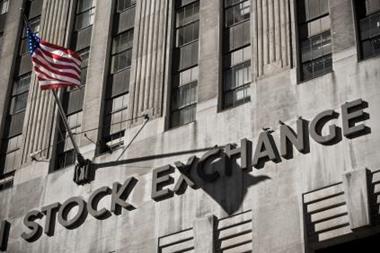People with too few savings; possibly an end to the default retirement age. Welcome to the world of the older workforce. Will your organisation measure up?
On 7 September, Standard Life released the results of its efforts to calculate ‘real’ retirement ages for people in the UK who aspired to retire on two thirds of their average income, but who had not saved towards retirement, and would be relying on state benefits alone.
Even with the generous assumption that state benefits would rise at 6.4% above earnings for each year they are deferred, the headline cases make for shocking reading. A high-earning 27 year old, with average earnings of £43,680 who retired at 68 would only get 21% of his average earnings if he relied on state benefits alone. His alternative would be working on until he was 86. A worker aged 54, in the same circumstances, would either have to work on until 80, or else contribute 50% of his salary to a pension pot – not exactly a realistic prospect. How many people are likely to be in this situation or something like it? Using Association of British Insurers’ figures, Standard Life suggests a third of the working population – 10 million people – have not saved anything towards retirement.
What this implies is that there will be a growing pressure from employees – even from many of those currently within pension schemes – to defer retirement for as long as possible. And this brings us straight into the vexed area of age discrimination and the default retirement age (DRA) – currently 65 in the UK.
The current situation in the UK is widely held to be confusing to employers and employees alike, with heavily bureaucratic procedures to be followed and discrimination tribunals lying in wait for those who get it wrong. For example, Personneltoday.com quotes the case of Plewes vs Adams Pork Produce Ltd where an employee’s contract required him to retire the day before his 65th birthday. This single day’s difference between 65 and 64 plus 364 days cost Adams more than £36,000 when a tribunal found they had discriminated against Plewes by forcing him to retire below the age of 65. There have been other high-profile age-discrimination revelations, including UK television presenter Selina Scott’s rumoured £250,000 settlement with Channel 5, and the news, reported by The Daily Telegraph in March, that two judges were suing the Ministry of Justice on age discrimination grounds.
Within the UK, there is growing pressure to relieve some of the confusion by abolishing the DRA altogether. The UK government had proposed to review the DRA in 2011, but announced, on 13 July this year, that this would be brought forward to 2010.
The existence of the DRA has already been challenged in the European Court of Justice, which returned it to the High Court in London. The court’s judgment emerged during the third week of September, and found that the DRA was legitimate for the present. However, the judge made it clear that he would have ruled against the default age of 65 if the government had not made its recent announcement, and said: ‘I cannot presently see how 65 could remain as a DRA after the review’.
Those who defend having a default retirement age largely do so on the grounds that it is convenient to both employee and employer. In a press release on 16 July, the Confederation of British Industry (CBI) commented: ‘The two main benefits of having a default retirement age are that it helps staff think about when it is right to retire, and helps employers plan more confidently for the future.’
The CBI added that its research showed that 81% of those asking to work on beyond 65 had their request granted. In other words, if it ain’t broke, don’t fix it. This stance was labelled ‘an excuse for bad management’ in a January debate in the House of Lords.
In Britain, the chief lobby group for the abolition of the DRA is the Employers Forum on Age (EFA). Reacting to the news that the government was bringing forward its review, Denise Keating their chief executive, said: ‘We are absolutely delighted that the government has finally listened to reason and taken action to tackle an archaic system which allows the enforced retirement of people simply because of their age … In an ageing society, and as recession begins to bite, we can no longer afford a culture of early retirement. It is vital that this anomaly in the age discrimination legislation is removed, as it will help deliver the massive cultural shift which is needed to stop people being stereotyped by age.’
One of the founder members of the EFA is B&Q, the giant do-it-yourself chain. Back in 1990, recognising the demographic risk, they opened a store in Macclesfield staffed entirely by over-50s, as an experiment to test common assumptions about the desirability of a young workforce. After a year, they benchmarked the Macclesfield store against four others and found that staff turnover was six times lower, there was 39% less absenteeism, and profits were 18% higher. In 1999 they removed all restrictions on retirement age.
Companies, such as B&Q, which have decided to do without a default retirement age claim that many of the perceived difficulties simply do not exist. People still want to retire, they say, but the absence of a DRA leaves them the choice of exactly when to do it. Managing the workforce certainly requires a different mindset – but what is wrong with a challenge to managers?
In mainland Europe the subject is also a topic of intense debate. In June of this year, President Sarkozy announced that ‘all options will be examined’ – raising fears that the cherished French retirement age of 60 was for the chop. Germany has already agreed to increase its retirement age in stages to 67. Interestingly, a Financial Times/Harris poll carried out in May found that 71% of Germans and over 50% of French and Spanish opposed the idea of working beyond pensionable age, while 66% of Americans, 61% of the British and 59% of Italians were in favour of the idea.
Companies who have grasped the nettle of the demographic risk and have decided to do without a DRA consider themselves pioneers of what will become inevitable. Risk managers should decide whether they are right.



















No comments yet